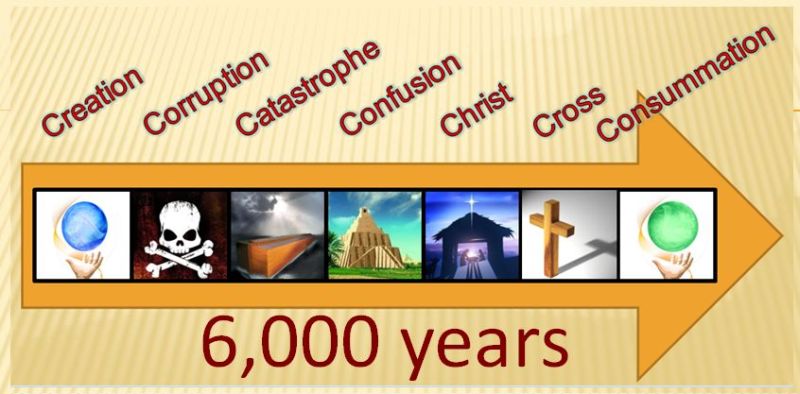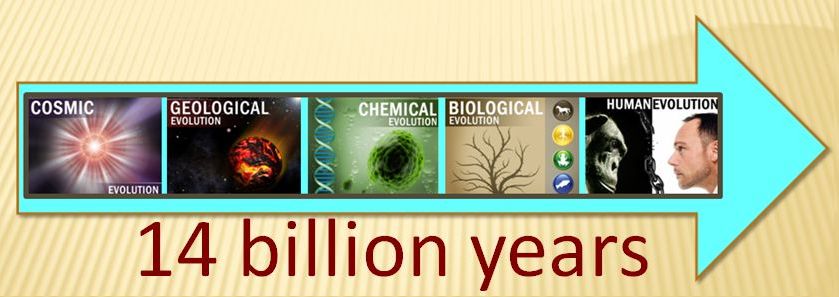Feedback archive → Feedback 2015
Four steps for surviving evolution classes at high school
Today’s feedback comes from RL of Australia, asking about how to deal with their classes on evolution at High School.

We are learning evolution in school (year 10 science), and I would like some handy get-to-the-point questions I can ask my science teacher to make him/her think. We are currently learning about adaptations, genes and DNA. Perhaps some questions about the animals that have structural and functional body parts which help them survive in their environment. My teacher has also mentioned ‘natural selection’ and I’m not quite sure how to answer that. He also believes that all animals evolved from sea animals. He asked us why we thought they decided to come on to the land. He is also mentioning the shape of all the animals and how this helps them survive.
CMI’s Dr Tas Walker responds.
Dear RL,
One of my granddaughters also had to learn about evolution in year 10 science. Actually, evolutionary ideas are taught from a much younger age, and they are not always obvious. When young people first encounter these new ideas, it can come as a shock and be quite upsetting. I gave my granddaughter four points to help her survive and thrive in her studies. I’ll mention these to you, too.
1. Remind yourself that they are just telling you a story
When your teacher is saying things like, “All animals evolved from sea animals” you just have to remind yourself that he/she is telling you a story. Don’t let it upset you. Remember that science is based on observation, and these stories were not observed. This is something to tell yourself; so you don’t get upset, stressed, or confused.
Remember that there are two basic stories to explain how this world and everything else came into being.
The first is in the historical record of the Bible. An outline of the events is:
- Creation in six days about 6,000 years ago,
- the Fall,
- the Flood about 4,500 years ago,
- the Tower of Babel about 200 years after the Flood,
- the call of Abraham and the history of Israel,
- the coming of Christ,
- the birth and growth of the church, leading up to where we are now.

A key point is that the events recorded in the Bible are historical, which means they are based on eyewitness accounts of people who were present and saw them happen.
The second story, which is taught at your high school, is evolution. An outline of the main events is:
- Big bang followed by cosmic evolution beginning ~14 billion years ago
- Formation of the earth about 4,500 million years ago and its subsequent geological evolution
- Origin of life some 3,500+ million years ago
- Biological evolution: fish to amphibians to reptiles to mammals to apes to humans.
- Human evolution: apes to humans
- Cultural evolution: humans as hunters, farmers, builders, artists, invention of religion, civilization

The key point about this story is that these events were not observed. No one saw these things happen. Every part of this story was invented by people who were not there. And the purpose of the story is to explain things by natural processes. God and the Bible are banned from the story.
So when your teacher or the textbook tells you that all land animals came from marine animals, etc., just remind yourself that they are telling you a story. And the reason they are telling the story in this way is because they have to explain the animals without God. That means the land animals had to evolve with very small changes from other animals over millions of years. And since, according to their thinking, the first living cell could not have arisen on the land, it had to originate in the ocean. So they conclude that life must have evolved in the ocean and eventually come out on to the land.
It’s all just a story fitted together by human logic, assuming the Bible is not true and there is no God.
2. Don’t feel that you have to prove that creation is true
Another way of saying this is, “Don’t take on yourself the burden of proof”. This will take all the stress out of your life. You don’t have to feel responsible to do something that you don’t feel you are equipped to do.
You don’t have to prove them wrong. You don’t have to prove you are right.
Put the burden of proof on to them, and make them try to prove it to you, which they won’t be able to do.
Consider the situation when your teacher says, “All animals evolved from marine animals.” It’s not a good idea to say, “I don’t believe that because I believe the Bible.” He/she will dismiss you as being religious. Then, he/she will humiliate you by saying that evolution is based on facts and evidence, but your religion is based on faith. So, don’t say you don’t accept evolution because you believe the Bible.1
Instead, focus on the evidence. Just keep saying things like: “Can you give me any evidence for that?” or “I don’t want to accept these claims on faith”, or “That does not make sense to me”, or “I don’t find that convincing”.
And when they do try to give you evidence, think about what they have said and ask them more questions about the evidence, as discussed under Point 3 in the next section.
These are the sorts of questions that you asked about in your email—handy get-to-the-point questions you can ask your science teacher to make him/her think. You see, when you engage the subject like this, your teacher will be impressed that you are thinking about and understand the subject, and this may be the first time he/she has been asked to present evidence.
So, develop the practice of asking questions about the evidence and about the interpretations presented to you by your teacher and the textbooks. This will put you in the driver’s seat.
3. Ask yourself, “What did they actually see?”
You need to think about what is being presented in class, and be careful not to dismiss automatically everything your teacher and textbooks say. Although they will present you a lot of evolutionary nonsense, they will also present plenty of good information. You need to learn how to sort out fact from belief.
You sort out fact from speculation by asking, “What did they actually see?” Another way of putting that question is, “What is the actual evidence for that?” Science is all about observation, and so you are just asking for the scientific evidence. In a science class, who can criticize you for that? You can ask the question of yourself as you read your textbook, or when the teacher presents some information. This will clarify the issue in your mind. Or you can ask it of your teacher or your fellow students. This question will empower you to sort out the confusing information you are presented with.
The teacher might show you a picture of a fossil fish with long fins and say it lived 300 million years ago and evolved into land animals because it walked on its long fins.
You ask yourself, “What did they actually see?”
- They saw the fish. They can tell you where they found it. They observed what the fish looked like, and the shape of its fins.
- But the fish did not have a label on it saying “300 million years old”. So you can know that the date they quote is not based on observation but on their beliefs.
- Neither did they see the fish walking on its fins, so that is also speculation.
- Nor did they see it come out on to the land, so that is an invention too.
This question is powerful and will help you understand what is factual and what is guesswork. It’s a question that you can use in your discussions with your teacher and your friends.
4. Keep learning and keep getting informed
When you first encounter evolution in your class you will probably know very little about it. Your teacher will be much more knowledgeable and experienced than you. However, by using the above strategies you will be able to survive and be confident. But you need to grow and develop. There will always be new issues and questions that you will encounter, which means you will need to keep learning. You will find creation.com very helpful. It has a great search engine where you can investigate the claims from your teacher and your textbooks.
You can easily find articles by searching for keywords, which in your case would be: adaptations, genes, DNA, natural selection, animal similarities, etc. In a discussion, if you do not know the answer, you can always say, “I’ll do some research about that and get back to you.” Then you will almost certainly find the issue answered on creation.com, which you can print out and later give to the person to whom you are talking.
A helpful book is Refuting Evolution by Jonathan Sarfati, which can be bought from the online store. It is aimed exactly at what they are teaching you at high school. It’s also available free online.
If you are not already subscribed you will find the email newsletter useful in helping you become informed. You can connect from the front page of the website. Also, if you do not receive Creation magazine, that is a great resource for ongoing learning.
As far as your year 10 course is concerned, the articles “They are teaching lies to our kids” and “They’re teaching racism to our kids” deal with some of the specific material in your textbooks. The articles deal with many topics and provide links to other articles for more in-depth information.
Concerning your comment on animal shape, the article “Are look-alikes related?” answers that question. Especially check out the similarities between placental and marsupial animals listed in the table in this article because they provide a powerful argument for design and against evolution.
Thanks for your email. I wish you all the best with your studies.
by Tas Walker Scientist, writer, speaker
Re-featured on homepage: 11 November 2020
References and notes
- It’s true that we don’t believe in evolution because it contradicts the Bible. However, it is also true that evolution is contradicted by the scientific evidence. By not mentioning the Bible you are not being sneaky because their belief in evolution is also driven by their beliefs about the Bible. That is, they believe in evolution because they do not believe the Bible. It will be easier for you to avoid the philosophical issues involved here. First, they probably will not understand them, and second, they may latch on to any chance to dismiss you. Return to text.







Readers’ comments
Comments are automatically closed 14 days after publication.